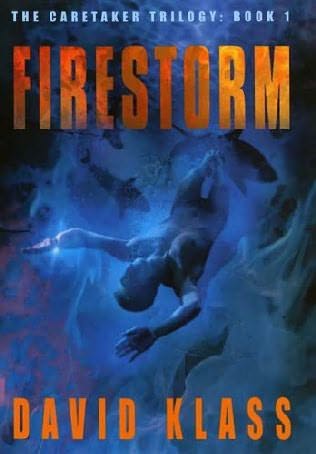
Jack is the star of the football team and is with friends at a local diner celebrating his most recent victory, when a strange man walks past him and his eyes start flashing silver. Jack tells his parents about this strange occurrence, which ends up changing his life forever: the strange man is from the future and has been sent back to track Jack down and destroy him. As Jack discovers, his parents are not his true parents, as he also has been sent from the future to try and save the world (yeah, kind of like in "Terminator"-- but I forgave the author this obvious similarity because the rest of the book is completely original). The rest of the novel follows Jack as he eludes shape-shifters and makes strange new friends (a talking dog and a beautiful ninja-girl), while trying to understand his past and come to terms with the present.
Firestorm is really exciting and original, so it is definitely a great read for anyone interested in a relatively easy, action-packed, sci-fi type adventure. It also has some fascinating ecological detail worked into the plotline, so you get a little information along the way. It did take me a while to get beyond the author's writing style, however, because he wrote the book almost entirely (it seemed) in sentence fragments. Short. Sentences. Make it exciting. Although sometimes. It drove. Me crazy. You get used to it after a while.
All in all, I definitely recommend Firestorm and give it a hearty 3 out of 4 bananas!


